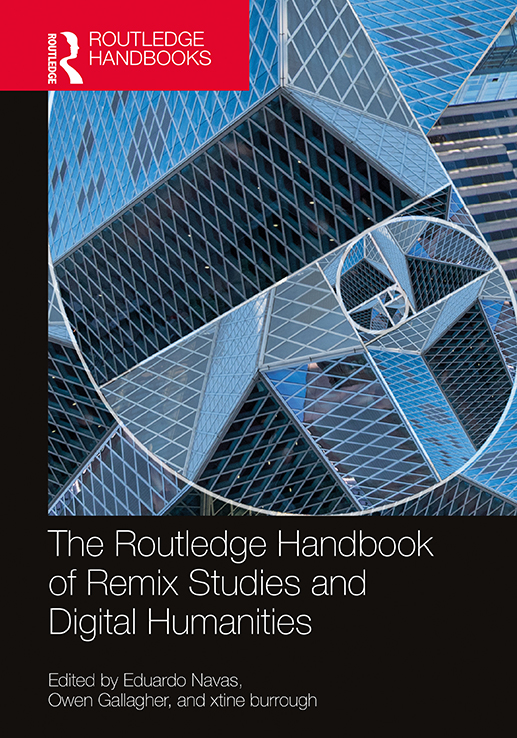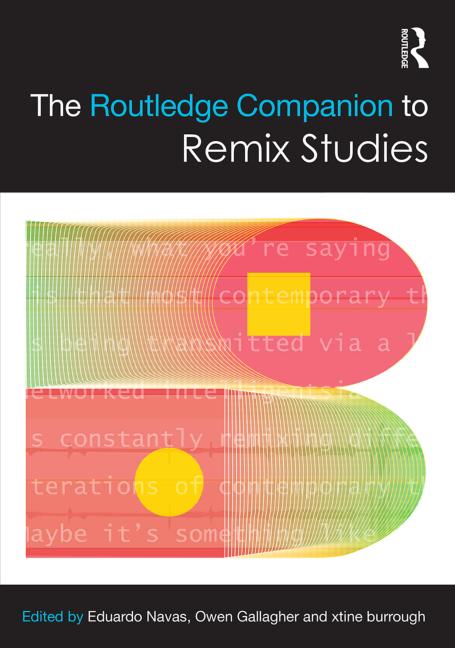The Routledge Handbook of Remix Studies and Digital Humanities is a comprehensive, interdisciplinary companion, in which contributors reflect on remix across the broad spectrum of media and culture, with each chapter offering in-depth reflections on the relationship between remix studies and the digital humanities.
The anthology is organized into sections that explore remix studies and digital humanities in relation to topics such as archives, artificial intelligence, cinema, epistemology, gaming, generative art, hacking, pedagogy, sound, and VR, among other subjects of study. Selected chapters focus on practice-based projects produced by artists, designers, remix studies scholars, and digital humanists. With this mix of practical and theoretical chapters, editors Navas, Gallagher, and burrough offer a tapestry of critical reflection on the contemporary cultural and political implications of remix studies and the digital humanities, functioning as an ideal reference manual to these evolving areas of study across the arts, humanities, and social sciences.
Cover concept by Eduardo Navas, Owen Gallagher and xtine burrough
Cover image: DJHughman
Keywords in Remix Studies consists of twenty-four chapters authored by researchers who share interests in remix studies and remix culture throughout the arts and humanities. The essays reflect on the critical, historical and theoretical lineage of remix to the technological production that makes contemporary forms of communication and creativity possible. Remix enjoys international attention as it continues to become a paradigm of reference across many disciplines, due in part to its interdisciplinary nature as an unexpectedly fragmented approach and method useful in various fields to expand specific research interests. The focus on a specific keyword for each essay enables contributors to expose culture and society’s inconclusive relation with the creative process, and questions assumptions about authorship, plagiarism and originality. Keywords in Remix Studies is a resource for scholars, including researchers, practitioners, lecturers and students, interested in some or all aspects of remix studies. It can be a reference manual and introductory resource, as well as a teaching tool across the humanities and social sciences.
The Routledge Companion to Remix Studies was updated on May 1, 2018
Image remixed by Eduardo Navas, Owen Gallagher, and xtine burrough
Text excerpt by Mark Amerika from the essay “Remixthecontext”
The Routledge Companion to Remix Studies comprises contemporary texts by key authors and artists who are active in the emerging field of remix studies. As an organic international movement, remix culture originated in the popular music culture of the 1970s, and has since grown into a rich cultural activity encompassing numerous forms of media.
The act of recombining pre-existing material brings up pressing questions of authenticity, reception, authorship, copyright, and the techno-politics of media activism. This book approaches remix studies from various angles, including sections on history, aesthetics, ethics, politics, and practice, and presents theoretical chapters alongside case studies of remix projects. The Routledge Companion to Remix Studies is a valuable resource for both researchers and remix practitioners, as well as a teaching tool for instructors using remix practices in the classroom.




